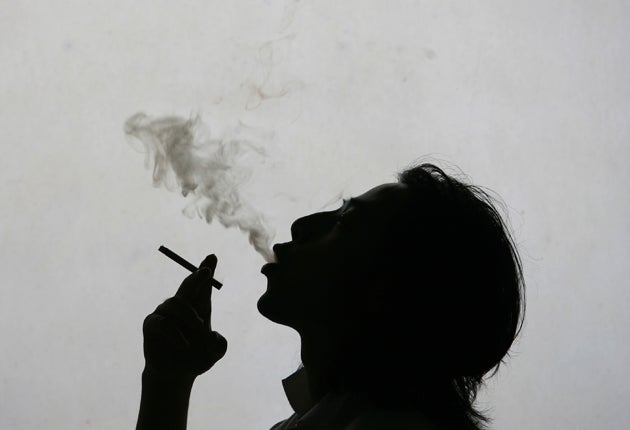People 'will get healthy' for just £3 in cash
It seems people are willing to adopt healthier lifestyles - for a small price

Your support helps us to tell the story
From reproductive rights to climate change to Big Tech, The Independent is on the ground when the story is developing. Whether it's investigating the financials of Elon Musk's pro-Trump PAC or producing our latest documentary, 'The A Word', which shines a light on the American women fighting for reproductive rights, we know how important it is to parse out the facts from the messaging.
At such a critical moment in US history, we need reporters on the ground. Your donation allows us to keep sending journalists to speak to both sides of the story.
The Independent is trusted by Americans across the entire political spectrum. And unlike many other quality news outlets, we choose not to lock Americans out of our reporting and analysis with paywalls. We believe quality journalism should be available to everyone, paid for by those who can afford it.
Your support makes all the difference.People are more likely to kick bad habits such as smoking if they are offered financial incentives of as little as £3, research has concluded.
In general, people are more likely to adopt healthier changes to their lifestyle if they are offered a cash reward, a study looking at more than 30,000 participants who had been set challenges such as quitting smoking has found.
The team from Newcastle University looked at 16 previous studies and found that just £3 could make people up to 50 per cent more likely to change their behaviour, when compared with usual care or no intervention.
Being handed financial penalties for not succeeding in their set task was also found to be an effective way of modifying behaviour – but larger incentives were no more likely to work than smaller ones.
Newcastle University Research Associate, Dr Emma Giles, said the team was surprised at just how strong the effect of a financial reward or penalty was. She said: "People who took part in these reward or penalty schemes were much more likely to adopt healthy behaviours, and if they continued they would have more chance of remaining healthy for longer.
Dr Giles said people also responded well to supermarket vouchers rather than cash sums. “This might be a more acceptable way of implementing this," she added.
However, whether the healthy changes people have made to their lives would continue after the cash rewards have ended remains unclear.
Dr Jean Adams, senior lecturer in public health, said: "We were surprised how few studies we found which had looked at the impact financial incentives can have.
"At this stage we don't know the right level that incentives should be at, so it is not clear if this sort of scheme would save the NHS and country money."
But the concept of financial rewards could provide an alternative method to help smokers kick the habit, she added.
"We try all kinds of techniques to try to help people to quit smoking or otherwise live healthy lives, so why not try this? It is about nudging people to healthier behaviours. There is a chance this could save the taxpayer money in the long run."
Additional reporting by PA
Join our commenting forum
Join thought-provoking conversations, follow other Independent readers and see their replies
Comments